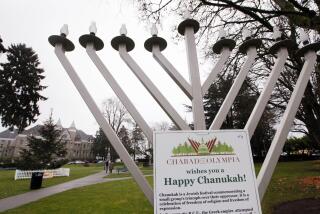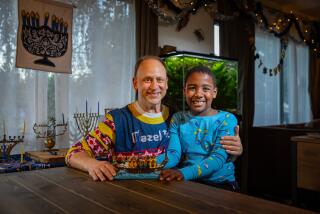Jewish boy’s parents sought community’s help first
- Share via
Reporting from New York — When an 8-year-old boy from an insulated, ultra-Orthodox Jewish neighborhood in Brooklyn failed to make it home from day camp, his parents’ first call was not to police, but to the Shomrim patrol, a local volunteer group whose name means “guardians” in Hebrew.
Hasidic areas like Borough Park, where a Shomrim-organized search party looked for Leiby Kletzky, are worlds unto themselves. Members have a distinctive appearance — wigs and modest dresses for the women, beards and side curls for the men. They send their children to Jewish schools, speak Yiddish as a first language and shun modern distractions like television.
Yet another distinction is the patrols, which residents turn to first because “they know the community, they speak the language, they have the trust of the entire community,” said Isaac Abraham, a leader of the ultra-Orthodox in Brooklyn’s Williamsburg section.
The search party for Leiby grew to as many as 5,000 people and served as a window into the tradition in these ultra-Orthodox communities of relying on one another.
Neighbors looking for the boy stopped knocking on doors Wednesday when his remains were found and police arrested Levi Aron, a hardware supply clerk who has pleaded not guilty to charges that he killed Leiby and dismembered him.
Despite the tragic end, the search was a powerful example of the value of Shomrim and similar patrols to their communities, said state Sen. Eric Adams, a retired New York Police Department captain who represents a neighboring Brooklyn district.
“The community patrols have the manpower that can immediately go into the crevices of a community that police may not even be aware of,” he said.
Police Commissioner Raymond Kelly praised the group and said he understood that there was a tradition in the Hasidic community of notifying the citizen patrols first. But Kelly said he wished the Kletzky family had called 911 at the same time.
More to Read
Sign up for Essential California
The most important California stories and recommendations in your inbox every morning.
You may occasionally receive promotional content from the Los Angeles Times.













